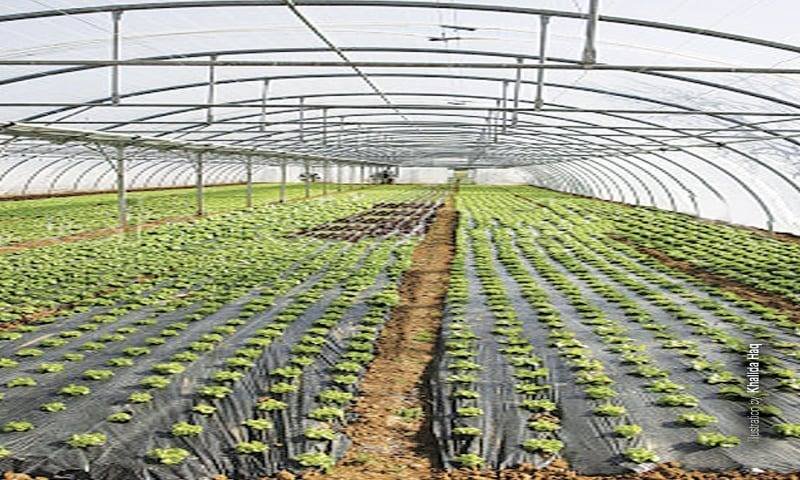China, as part of the China-Pakistan Economic Corridor (CPEC), has been collaborating with Pakistan to enhance various sectors, including agriculture
In a bid to revolutionize its agricultural sector, Pakistan is looking to leverage the expertise of Chinese farmers who have successfully embraced modern tunnel farming methods. Despite being an agrarian economy, Pakistan has been grappling with low yields and high production costs due to the persistence of traditional farming practices.
Hassan Ali, a PhD scholar from the University of Agriculture Faisalabad, emphasized the need for Pakistan to adopt the latest tunnel farming techniques employed by Chinese farmers, citing the potential for increased productivity at more affordable rates.
China, as part of the China-Pakistan Economic Corridor (CPEC), has been collaborating with Pakistan to enhance various sectors, including agriculture. Hassan Ali suggested that the Pakistani government should seek assistance from Chinese experts to train local students virtually, if not practically, enabling them to incorporate modern tunnel farming methods.
Dr. Nadeem, an agriculture scientist, highlighted the success story of Chinese agricultural experts training Pakistani farmers in red chili production, leading to Pakistan exporting its first consignment to China. He stressed that tunnel farming could be a game-changer for Pakistan, especially in cultivating vegetables like chili, tomato, watermelon, cucumber, bottle gourd, muskmelon, hot pepper, sweet pepper, and others.
According to Dr. Nadeem, the winter months in Punjab pose a challenge for vegetable cultivation, making tunnel farming a crucial solution. By covering the tunnels with plastic sheets, the controlled environment allows plants to thrive without succumbing to extreme winter conditions. He underscored that tunnel farming, inspired by Chinese practices, has already become a revolutionary force in Pakistan, boosting profits for growers.
Hassan Ali pointed out that a memorandum of understanding (MoU) between China’s Tianjin Modern Vocational Technology College and the MNS-University of Agriculture, Multan, has set the stage for technology transfer to bolster Pakistan’s agriculture sector. The collaboration aims to impart the latest skills to local farmers, ultimately increasing productivity.
Progressive farmer Ansar Ali acknowledged the effectiveness of tunnel farming but noted that traditional methods still prevail due to the lack of adequate training for Pakistani farmers. He emphasized the affordability and efficiency of high-tunnel agriculture compared to conventional farming, expressing the need for comprehensive training programs to bridge the knowledge gap.
Tunnel farming offers the advantage of year-round crop production, allowing farmers to bypass seasonal restrictions. Despite its potential benefits, some farmers remain hesitant due to the perceived high cost of infrastructure. Ansar Ali urged for more contracts across districts to empower farmers, enhance work capacity, and boost overall profits.
Dr. Nadeem echoed concerns about the youth’s reluctance to pursue agriculture as a career. In light of this, he advocated for the adoption of indoor farming, emphasizing tunnel farming as an essential feature for the future. Drawing inspiration from China’s rapid promotion of indoor farming, Dr. Nadeem stressed the importance of embracing modern techniques to meet the growing demand for food.
As Pakistan seeks to regenerate its agricultural landscape, the integration of Chinese expertise in tunnel farming emerges as a pivotal strategy. The collaboration not only promises increased crop production and profitability but also positions Pakistan on the path to sustainable agricultural practices for the future.
